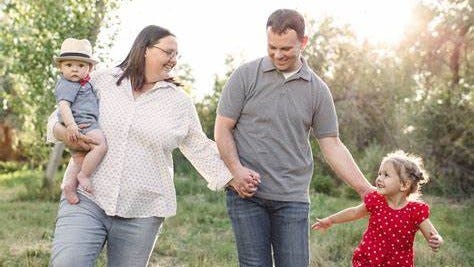
The number of Americans providing care to a wounded, ill, or injured service member or veteran now stands at 14.3 million — representing 5.5 percent of all U.S. adults.
That’s according to a nationwide study of military and veteran caregivers presented by RAND researchers on Sept. 24 at the Elizabeth Dole Foundation's 9th Annual National Convening on Military Caregiving at Amazon HQ2 in Arlington, Virginia.
Researchers found that caregivers provide at least $119 billion worth of care to their loved ones every year, while 35 percent of their households live below 130 percent of the federal poverty line.
"America has largely left the care of its service members and veterans in the hands of their family members and friends, without ensuring that they are prepared or adequately supported," said Elizabeth Dole Foundation CEO Steve Schwab. "RAND's findings are a wake-up call for the nation and force us to confront the consequences of continuing to thrust these tremendous responsibilities upon millions of selfless caregivers and their families."
The estimated population of 14.3 million military and veteran caregivers is up from the 2014 estimate of 5.5 million.
The study was made possible with the support of the Wounded Warrior Project, the Lilly Endowment, AARP, and Lockheed Martin. It serves as a 10-year follow-up to the Foundation's first landmark report, released in 2014 from the White House.
Dr. Rajeev Ramchand, lead author and co-director of RAND's Epstein Family Veterans Policy Research Institute, noted that about 40 percent of the military and veteran caregivers are also "sandwich caregivers," who also care for a child under 18, and many of these children are struggling.
According to Ramchand, almost a quarter of military and veteran caregiver kids needed mental health treatment in the past year but did not receive it. That’s nearly double the rate of civilian caregiver kids and three times the rate of non-caregiver children.
Caregivers lose more than $13,000 in annual out-of-pocket costs due to caregiving and lost household income and food insecurity is more common among caregivers, particularly those caring for a veteran or service member aged 60 or younger, 40 percent of whom are food insecure, according to Ramchand.
The study also found that depression and suicidal thoughts occur more frequently among caregivers than non-caregivers, among those caring for a veteran or service member aged 60 or younger, one in five contemplated suicide in the last year.
Sixty-three percent of uninsured military caregivers live in Southern states; 59 percent are non-White; and 47 percent live below the 100 percent poverty line. Among those caring for a service member or veteran aged 60 or younger, 39 percent lack healthcare coverage, which is 15 percentage points higher than civilian caregivers in the same age demographic.
More than 70 percent of military and veteran caregivers felt that they were not listened to or that their input was not sought by their loved ones' healthcare provider.
"Every day caregivers sacrifice to ensure veterans and service members have the care they need and deserve. The RAND report highlights just how significantly this can affect their mental and financial health and impact their children," said WWP CEO Ret. Lt. Gen. Walt Piatt. "As more warriors face the lasting impacts of our nation's longest war, the need for dedicated, selfless caregivers increases. That's why Wounded Warrior Project is committed to providing the crucial care and long-term support these warriors and their caregivers will need as they age."
The Elizabeth Dole Foundation announced plans to mobilize its extensive network, including the over 100 organization members of the Hidden Helpers Coalition and the more than 200 communities across the nation that have joined its Hidden Heroes Cities and Counties network, to implement the report's recommendations and effectively address its most urgent findings.
Recommendations include expanded mental health and substance use treatment options for caregivers and their children, increased financial support, more caregiver-friendly work environments, and greater progress on including caregivers in their loved ones' healthcare teams.
Military and veteran caregivers looking for support, and those who wish to offer their help to this community, can visit here.
Reach Julia LeDoux at Julia@connectingvets.com.
